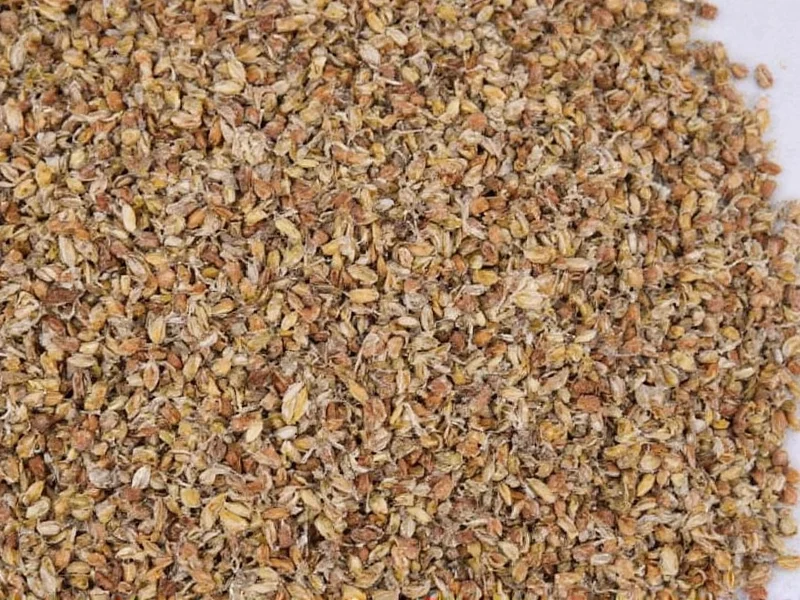When you're in the middle of cooking and realize you're out of caraway seeds, finding the right substitute can make or break your dish. Caraway's distinctive flavor—earthy with subtle licorice notes—is essential in many traditional recipes from Central and Eastern Europe. Understanding what makes caraway unique helps you select the most appropriate replacement without compromising your culinary creation.
Understanding Caraway's Unique Flavor Profile
Caraway seeds contain carvone, the same compound found in spearmint, which gives them their characteristic warm, slightly sweet, and mildly peppery flavor with a hint of citrus. This complex profile makes caraway irreplaceable in certain dishes like rye bread, goulash, and traditional sauerkraut. When seeking a caraway seed substitute for rye bread, you need something that provides similar earthy notes without overwhelming the delicate bread structure.
The key to successful substitution lies in matching either the earthy component or the licorice note, depending on your specific recipe. Some dishes rely more on caraway's earthiness (like meat stews), while others depend on its subtle sweetness (like certain breads and cheeses).
Top Caraway Substitutes Ranked by Effectiveness
Not all substitutes work equally well across different recipes. Here's how the most common alternatives compare for various cooking applications:
| Substitute | Best For | Flavor Match | Ratio |
|---|---|---|---|
| Dill seeds | Rye bread, potato dishes, vegetable salads | 75% - similar earthiness with milder licorice notes | 1:1 |
| Fennel seeds | Sweet breads, fish dishes, roasted vegetables | 70% - sweeter with stronger licorice flavor | 3:4 (use slightly less) |
| Anise seeds | Strong-flavored dishes, pickling, hearty stews | 85% - more intense licorice note | 1:1 (use sparingly) |
| Cumin + coriander blend | Meat dishes, goulash, savory sauces | 65% - earthy without licorice notes | 1:1 (equal parts) |
| Cardamom | Complex spice blends, some breads | 60% - citrusy with floral notes | 1:2 (use half amount) |
Practical Substitution Guidelines for Common Recipes
For Bread Making
When searching for a caraway replacement in traditional rye bread, dill seeds provide the closest match without altering the bread's texture. Use an equal amount of dill seeds to replace caraway. If making pumpernickel or other dense rye breads, consider adding a pinch of fennel seeds to the dill for enhanced complexity. Avoid anise seeds in bread recipes as their stronger flavor can dominate the delicate crumb structure.
For Meat Dishes and Goulash
The best replacement for caraway in goulash depends on your flavor preference. For authentic Hungarian goulash, a 50/50 blend of cumin and coriander works surprisingly well, providing the earthy depth without the licorice notes. If you prefer to maintain some sweetness, use fennel seeds at a 3:4 ratio (¾ teaspoon fennel for every teaspoon of caraway called for). Remember that caraway traditionally helps cut through the richness of meat dishes, so don't omit a substitute entirely.
For Pickling and Vegetable Dishes
Caraway seed alternatives for pickling should provide similar preservative qualities along with flavor. Dill seeds are the ideal choice here, working particularly well with cucumbers and beets. For traditional sauerkraut, use dill seeds at a 1:1 ratio, but consider adding a small piece of dried orange peel to mimic caraway's citrus notes. Anise seeds can work in stronger pickling solutions but use them at half the recommended amount to prevent overpowering the vegetables.
Advanced Substitution Techniques
For professional results when you need caraway alternatives for cooking, consider these advanced techniques:
- Layering flavors: Combine small amounts of two substitutes (like ½ tsp dill + ¼ tsp fennel) to create a more complex profile
- Timing matters: Add substitutes at different cooking stages—anise seeds early for stronger flavor, dill seeds later for brighter notes
- Toast your substitutes: Lightly toasting dill or fennel seeds before use enhances their flavor and brings them closer to caraway's profile
- Acid balance: When using stronger substitutes like anise, add a touch more acid (lemon juice or vinegar) to balance the flavor
What NOT to Use as Caraway Substitutes
Certain common spices make poor caraway replacements despite superficial similarities. Avoid using:
- Star anise: Too strong and medicinal for most caraway applications
- Fenugreek: Creates an entirely different flavor profile with maple-like notes
- Caraway oil: Far too concentrated for direct substitution in recipes
- Ground caraway: If your recipe calls for seeds, don't substitute ground—use whole seeds of your alternative
Many home cooks mistakenly believe cumin alone makes a good caraway substitute, but its stronger, smokier profile works better in blends than by itself. When looking for caraway replacement ratios, remember that direct 1:1 substitutions often require adjustment based on your specific palate and recipe requirements.
Special Considerations for Dietary Restrictions
If you're seeking caraway seed alternatives for vegetarians or those with specific dietary needs, note that caraway itself is naturally vegan and gluten-free. The same applies to all suggested substitutes. However, if someone specifically dislikes caraway's flavor profile (rather than lacking the ingredient), consider completely different flavor directions:
- For those avoiding licorice notes: Use a blend of coriander, celery seed, and a pinch of mustard seed
- For nut-free alternatives: All suggested substitutes are naturally nut-free
- For low-FODMAP diets: Use fennel pollen instead of seeds for reduced fructose content











 浙公网安备
33010002000092号
浙公网安备
33010002000092号 浙B2-20120091-4
浙B2-20120091-4